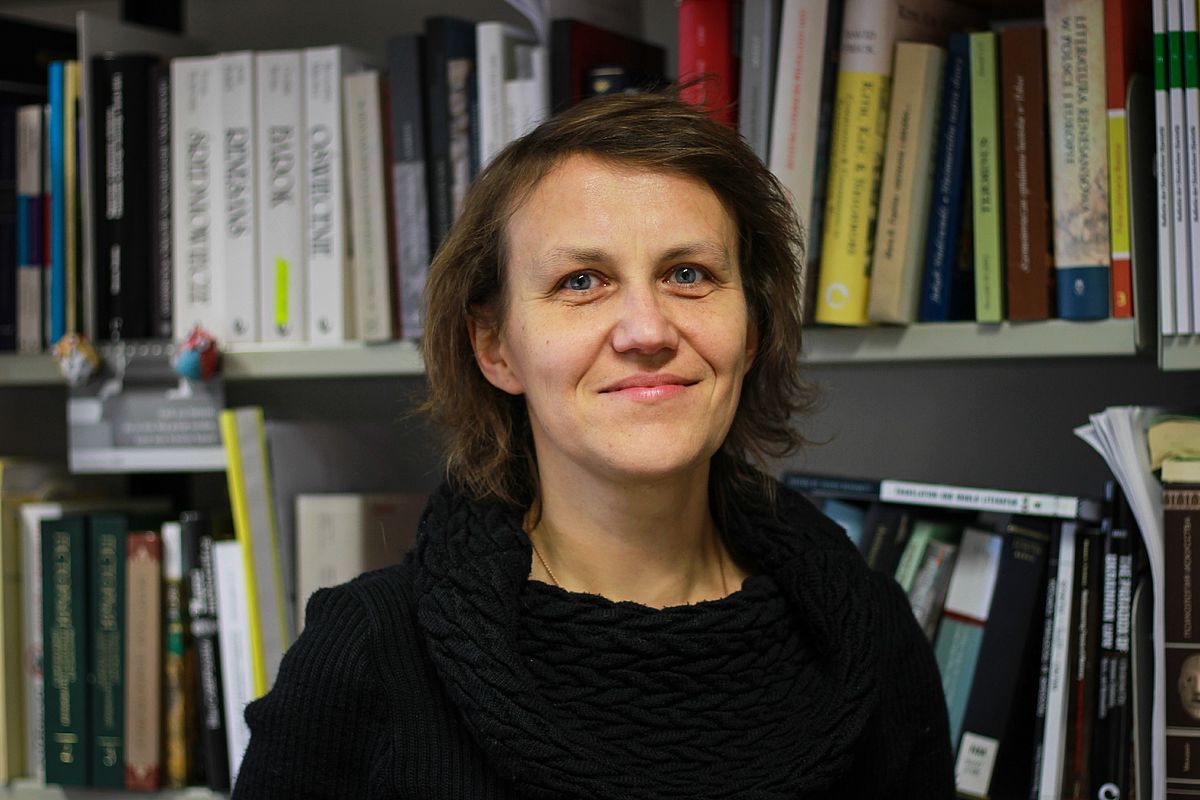Visiting researcher from Belarus: “disseminating new knowledge”
Zhanna Nekrashevich-Karotkaja, Professor of Literature in Minsk, visited the University of Passau as a Humboldt scholar. In our interview, she explains why this is unusual in her country and what she has gained from her time in Passau.
Zhanna Nekrashevich-Karotkaja was born in Minsk in 1972. She studied Russian philology and classic philology at the Belarusian State University in Minsk, where she later went on to obtain her doctorate and write her habilitation thesis. Her research interests include the Latin works of the Renaissance and Early Baroque period in the Grand Duchy of Lithuania, as well as the Polish-language and Belarusian-language literature of the nineteenth century. From 10 September to 8 December 2018, the professor was a guest at the University of Passau’s Chair of Slavic Literatures and Cultures held by Professor Dirk Uffelmann.
Why did you choose the University of Passau for your scholarship?
In April 2017, I met the Passau-based academic Dr Marion Rutz at a “Monitoring and Contact Seminar between German and Belarusian Universities” in Minsk. She was familiar with my work on neo-Latin literature and suggested that we meet as part of the seminar. We soon noticed that there were numerous points of overlap for an in-depth collaboration. One of her main research interests is the early modern literature of the Polish-Lithuanian Commonwealth, and she had at the time just begun her habilitation project “Multilingualism as a textual process in the literature of the Early Modern Grand Duchy of Lithuania”. I had also met Professor Dirk Uffelmann at a conference in Berlin. As an expert in literary theory and cultural studies who takes account of the most current international research paradigms in his work, he supported me in integrating innovative approaches within my own work. I was also influenced by the fact that a partnership agreement had been arranged between the Belarusian State University and the University of Passau in 2017, which facilitated numerous collaboration opportunities.
What did your research focus on during your time at the University of Passau?
I predominantly studied new research literature and worked on my monograph “The creative work of Johannes Mylius Libenrodensis: humanist catechism, education and cultural transfer in the era of the Reformation”. I also prepared some guest lectures and developed the concept and programme for an international workshop together with Dr Rutz. This will be the first workshop abroad that I have helped organise. We were all the more pleased when we learned that we will receive funding for the workshop from the Fritz Thyssen Foundation.
What is your impression of the University of Passau?
I noticed right away that students and lecturers are very well-networked. Networking in general is a major topic at the university. I found it incredibly practical how this campus-based university has every building located on a single site. I also had the impression that the university executive places great emphasis on good infrastructure for studying and research: everyone has access to devices such as photocopiers, scanners and printers. You can work in the office at any time of day – or night, if necessary. I personally benefited greatly from being able to access research literature; because lots of research has been conducted over many years by Humanities scholars into East-Central and Eastern Europe, cultural contacts and interconnections, the university library contains the most up-to-date research literature. I also found the Welcome Centre to be a great help.
What have you experienced during your time in Passau that will prove useful once you are back in your home country?
Whereas I was mainly in touch with other Slavists during my earlier visits as part of the Alexander von Humboldt scholarship, this time I very consciously established interdisciplinary contacts, such as with Professor Thomas Wünsch, a scholar of Eastern Europe, and Professor Andrea Sieber, a literary scholar. My experiences show that many ideas and perspectives in Western cultural studies – even those that specifically describe and address the problems of the modern Belarusian cultural sphere, its identity characteristics and literary context – remain largely unknown in my own country. The weakening of academic contacts in post-Soviet Russia has led to a situation where Belarusian literary scholars are today often ill-informed when it comes to current academic tendencies in Western Europe. Owing to the specific political situation in Belarus, many academics limit themselves to international conferences that take place in the countries of Eastern and East-Central Europe. There is therefore virtually no dialogue between German and Belarusian literary scholars regarding the older Belarusian literature. I therefore consider it my most important task to use my classes at the university in Minsk and other academic activities in order to disseminate new knowledge in my home country concerning the current state of cultural and literary studies and the research on Eastern Europe conducted by my German colleagues.
About Professor Dirk Uffelmann
"A wonderful experience"
The programmes of the prestigious Alexander von Humboldt Foundation promote academic co-operation between excellent scientists and scholars from Germany and abroad. The Fellows below have chosen to pursue their research at our University – here is what they said of their experiences.



